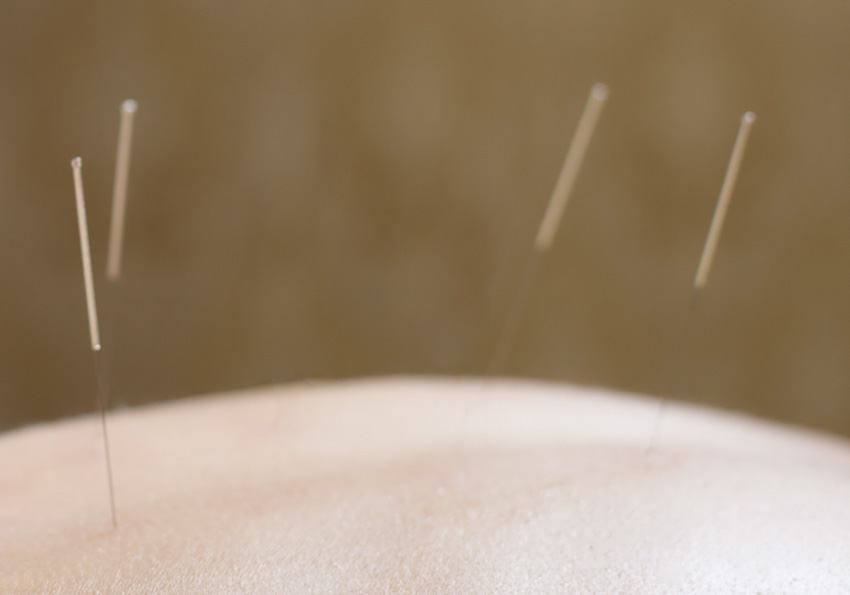
Acupuncture alleviates postpartum depression. In a recent study conducted by the Traditional Medicine Hospital of Hainan Province (Haikou), acupuncture was found safe and effective. [1] This study compared standard care (psychological intervention and medication) to standard care paired with acupuncture for 80 women diagnosed with postpartum depression. The standard care control group measured a 67.5% total effective rate, while the group also receiving acupuncture measured a 90% total effective rate.
The women in this study were 22–43 years old, with a mean age of 30.44. They had been suffering from depression for 3–15 months, with a mean duration of 5.06 months. In addition to meeting the diagnostic criteria for postpartum depression, they were also required to have stable signs and normal organ function, a HAMD-17 (Hamilton Depression Rating Scale) score of ≥18, and informed consent from them and their families. Exclusion criteria included psychiatric illness prior to pregnancy, use of antidepressants within the previous 3 months, psychiatric disorders other than depression, inability to comply with treatment, incomplete data, and intolerance to acupuncture treatment.
The 80 women who met the above criteria were randomly assigned to the control group or the acupuncture group. There were no statistically significant differences in baseline characteristics between the two groups (p>0.05) prior to treatment.
Treatment Protocol
All the women received standard care, including psychological intervention and Jia Wei Xiao Yao Wan herbal medicine. Patients took 6 g of Jia Wei Xiao Yao Wan pills, twice a day. Psychological intervention was comprised of weekly one-on-one counseling, patient education on postpartum health, postpartum depression, and strategies for coping with anxiety and depression, confidence building in the ability to overcome the condition, and family education to encourage a supportive home environment.
Women assigned to the acupuncture group received “blood enriching and heart nourishing” treatments. Anxiety resulting from blood loss during labor damages the heart and spleen qi and blood, and this leads to stagnation. Acupuncture was administered at the following acupoints:
- Xinshu (BL15)
- Pishu (BL20)
- Guanyuan (CV4)
- Xuehai (SP10)
- Zusanli (ST36)
- Sanyinjiao (SP6)
- Shenmen (HT7)
- Baihui (GV20)
Needles were inserted to a depth of 0.5–0.8 cun, and stimulated according to each patient’s specific needs. Electrical stimulation was applied after achieving deqi. Needles were retained for 30 minutes. Acupuncture was administered six days a week for a total of 12 weeks.
Outcomes
Outcome measures for this study included the HAMD-17 scale, TCM syndrome scores, and the total effective rates for each treatment group.
The HAMD-17 is a 17-item scale that rates both physical and psychological symptoms of depression. Each symptom is rated according to its severity, with higher scores indicating higher severity. A HAMD-17 score of 7–17 indicates possible depression, a score of 17–24 indicates depression, and a score of >24 indicates severe depression.
Mean pretreatment HAMD-17 scores measured at 28.44 in the control group and 29.28 in the acupuncture group. These scores fell to 14.13 and 9.09 respectively following treatment. Although both groups experienced significant improvements, improvements were significantly greater in the acupuncture group (p<0.05).
TCM syndrome scores were used to rate the symptoms of 12 different patterns on a scale of 0–3. A score of 0 indicates complete absence of symptoms, a score of 1 indicates mild symptoms, a score of 2 indicates moderate symptoms, and a score of 3 indicates severe symptoms. The maximum possible total score is 36.
Mean pretreatment TCM syndrome scores were 27.93 in the control group and 28.14 in the acupuncture group. These scores fell to 15.55 and 10.29 respectively following treatment. Both groups experienced significant improvements, but again improvements were significantly greater in the acupuncture group (p<0.05).
Total effective rates were calculated for each group as well. Patients displaying clear improvements in symptoms and a reduction in HAMD-17 scores of ≥75% were classified as cured. Patients displaying clear improvements in symptoms and a reduction in HAMD-17 scores of 50–75% were classified as markedly effective. Patients displaying some improvements in symptoms and a reduction in HAMD-17 scores of 25–50% were classified as effective. Patients displaying no clear improvements in symptoms and a reduction in HAMD-17 scores of <25% were classified as ineffective. The number of cured, markedly effective, and effective cases were added together to calculate the total effective rate.
The control group had 8 cured, 10 markedly effective, 9 effective, and 13 ineffective cases with a total effective rate of 67.5% following treatment. The acupuncture group had 11 cured, 18 markedly effective, 7 effective, and 4 ineffective cases with a total effective rate of 90% following treatment. The difference in total effective rates between the two groups is statistically significant (p<0.05). The results of this study indicate that acupuncture is a useful adjunctive treatment for postpartum depression and greatly enhances the effects of psychological treatment and medications.
Reference:
[1] Pan Li (2018) “Observation on therapeutic effect of blood enriching and heart nourishing acupuncture combined with psychological intervention on postpartum depression” Maternal and Child Health Care of China Vol.33 (22), pp.5073 -5075.


